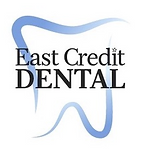Our Mississauga Dentist Breaks Down Gum Disease
Gum disease, or periodontal disease, is a common condition that affects millions of people worldwide. It’s often misunderstood and overlooked, but the reality is that untreated gum disease can lead to serious oral health complications, including tooth loss. Understanding the stages of gum disease and knowing how to prevent them is crucial for maintaining a healthy smile.
If you’re suffering from symptoms of gum disease, contact our dentist in Mississauga for your appointment. Call (905) 567-1132.
What Is Gum Disease?
Gum disease is an infection of the tissues that support your teeth. It begins with the buildup of plaque—a sticky film of bacteria that forms on your teeth. If left untreated, plaque hardens into tartar, which can cause inflammation and damage to the gums.
There are two primary stages of gum disease:
- Gingivitis: The early, reversible stage of gum disease.
- Periodontitis: The more advanced stage that can cause irreversible damage.
Stage 1: Gingivitis
Gingivitis is the mildest form of gum disease. It occurs when plaque buildup on the teeth causes the gums to become inflamed and irritated. At this stage, the damage is still reversible with proper care.
Signs and symptoms:
- Red or swollen gums
- Gums that bleed easily during brushing or flossing
- Bad breath (halitosis)
- Tenderness in the gums
Gingivitis is often painless, so many people may not realize they have it. That’s why regular dental exams are essential.
How to Prevent and Reverse Gingivitis
When it comes to preventing or reversing the earliest stage of gum disease, make sure you’re doing the following:
- Brush your teeth twice daily using fluoride toothpaste.
- Floss daily to remove food particles and plaque from between your teeth.
- Use an antiseptic mouthwash to kill bacteria and freshen your breath.
- Visit our dentist regularly for professional dental cleanings and check-ups.
Stage 2: Early Periodontitis
If left untreated, gingivitis can advance to early periodontitis. At this stage, the infection begins to damage the bone and connective tissues that hold your teeth in place.
Signs and symptoms of early periodontitis:
- Gums pulling away from the teeth (gum recession)
- Formation of pockets between the gums and teeth
- Persistent bad breath
- Mild bone loss detected during dental exams
In early periodontitis, the damage is no longer fully reversible, but it can be managed with appropriate treatment.
How to Manage Early Periodontitis
If you’re dealing with early periodontitis, you can do the following to help manage it:
- Continue with a rigorous oral hygiene routine, including brushing, flossing, and using mouthwash.
- Professional deep cleanings (scaling and root planing) may be necessary to remove tartar buildup from below the gum line.
- Antibacterial treatments may be prescribed to reduce infection.
- Avoid smoking or using tobacco products, as these can worsen gum disease.

Stage 3: Moderate Periodontitis
At the moderate periodontitis stage, the damage to the gums, bone, and connective tissues worsens. Without intervention, this stage can lead to tooth instability and the need for more invasive treatments.
Signs and symptoms:
- Increased gum recession and deeper pockets between teeth and gums
- More significant bone loss
- Loosening of teeth
- Frequent gum bleeding, especially when eating or brushing
How to Treat Moderate Periodontitis
There are several treatment options, including:
- Scaling and root planing are often required to clean the pockets around the teeth.
- Laser therapy or other advanced treatments may be used to target infected tissue.
- Medications such as antibiotics may be prescribed to control infection.
- Surgery may be necessary in some cases to reduce pocket depth and restore damaged tissues.
Stage 4: Advanced Periodontitis
Advanced periodontitis is the most severe form of gum disease. At this stage, the bone supporting your teeth is significantly damaged, and the teeth may become loose or fall out. In some cases, tooth extraction may be required.
Signs and symptoms of advanced periodontitis:
- Severe gum recession
- Deep pockets filled with pus between the teeth and gums
- Significant bone loss
- Loose or shifting teeth
- Difficulty chewing or biting
How to Manage Advanced Periodontitis
- Surgical treatments such as bone grafts or soft tissue grafts may be needed to rebuild lost bone and gum tissue.
- Guided tissue regeneration may be used to encourage the regrowth of damaged bone and tissue.
- Tooth extractions may be necessary if the teeth cannot be saved.
- Dental implants or dentures may be required to replace missing teeth and restore function.
Preventing Gum Disease
Brush and Floss Regularly
Proper oral hygiene is your first line of defense against gum disease. Brush your teeth twice a day for at least two minutes and floss daily to remove plaque and food particles from between your teeth.
Use Mouthwash
An antibacterial mouthwash can help reduce the bacteria that cause plaque and gum disease. Make sure to choose a mouthwash that is specifically formulated to help prevent gum disease.
Maintain Regular Dental Visits at Our Mississauga Dental Office
Routine dental exams and cleanings allow our dentist to catch gum disease in its early stages and provide professional cleanings that can remove tartar before it leads to more serious problems.
Eat a Healthy Diet
A diet rich in vitamins and minerals can help keep your gums healthy. Be sure to consume plenty of fruits, vegetables, and whole grains to support your immune system and overall oral health.
Avoid Using Tobacco Products
Smoking and the use of tobacco products significantly increase your risk of developing gum disease. Quitting smoking or avoiding tobacco can dramatically improve your oral health.
Manage Health Conditions
Certain conditions like diabetes can increase your risk of gum disease. Managing these conditions with the help of your healthcare provider can help protect your gums.

Protect Your Smile with Preventive Dental Care
Gum disease is a serious but preventable condition. By understanding the stages of gum disease and taking proactive steps to maintain your oral health, you can keep your gums and teeth healthy for life. Remember, prevention is always better than cure, so prioritize your dental care routine and schedule regular check-ups with your dentist.
To schedule a dental appointment with our Mississauga dentist, contact East Credit Dental today at (905) 567-1132.

